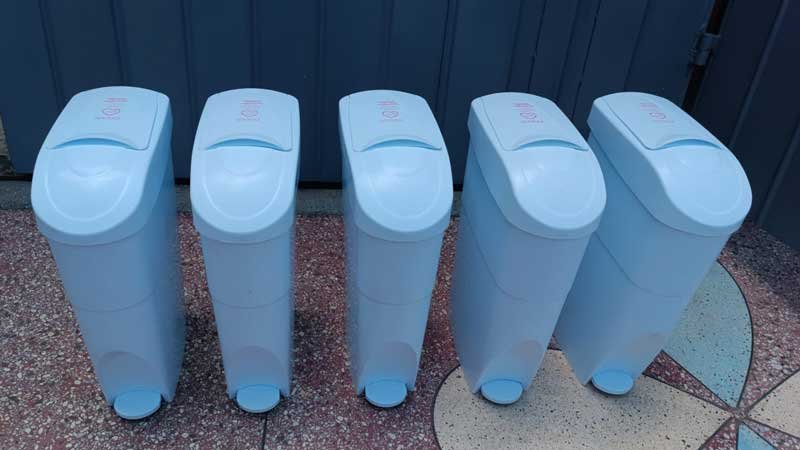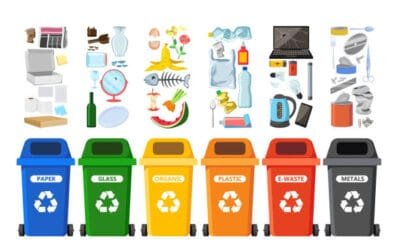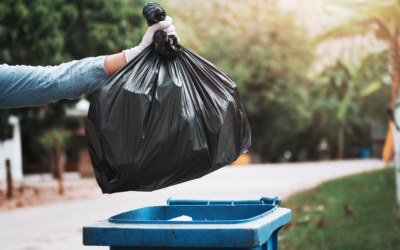Introduction
Ever been in a public restroom in Kenya and noticed there’s nowhere to dispose of sanitary pads? You’re not alone. For a long time, sanitary bins in Kenya have been overlooked, yet they play a massive role in hygiene, dignity, and gender equality. Thankfully, the tides are shifting.
In Kenya, the conversation around menstrual hygiene is gaining momentum, and sanitary bins are now being recognized as more than just a luxury—they’re a necessity. Whether in schools, offices, malls, or even rural clinics, the presence (or absence) of a sanitary bin speaks volumes about how we treat women and girls.
Understanding Sanitary Bins
What Are Sanitary Bins?
Sanitary bins are specialized waste containers used for disposing of feminine hygiene products like sanitary pads, tampons, and panty liners. Unlike regular trash bins, these are designed to be discreet, odor-proof, and safe to use in shared restrooms.
Types of Sanitary Bins
There are several types, each serving different environments:
- Manual Bins: Operated by lifting a lid—common but less hygienic.
- Automatic Bins: Sensor-operated for hands-free use, offering superior hygiene.
- Wall-Mounted Bins: Space-saving options ideal for tight restroom spaces.
- Free-Standing Bins: Larger capacity, typically used in high-traffic areas.
The Importance of Sanitary Bins
Promoting Hygiene
Used sanitary products can harbor harmful bacteria. Without proper disposal methods, public restrooms become breeding grounds for infection. Sanitary bins help keep facilities clean and safe.
Protecting Human Dignity
No one should have to wrap a used pad in tissue and sneak it into a handbag. Sanitary bins provide privacy and restore dignity, especially for schoolgirls and working women.
Reducing Environmental Impact
Improper disposal (like flushing pads down toilets) clogs plumbing and pollutes water systems. Sanitary bins, when used with proper disposal systems, reduce these risks significantly.
The Current Sanitary Bin Situation in Kenya
Common Practices in Urban Areas
In Nairobi, Mombasa, and Kisumu, sanitary bins are slowly becoming standard in malls, upscale offices, and hospitals. However, many smaller businesses still lack them.
The Rural Gap in Access
Rural areas face major challenges. Many schools and clinics don’t have sanitary bins, leading to unhygienic practices like burning or burying used products.
Educational Institutions and Offices
While some institutions are adopting best practices, the majority lack funding or awareness. Public schools are often the worst affected.
Legal and Regulatory Framework
Kenyan Laws on Sanitary Waste Management
While Kenya doesn’t have a specific law mandating sanitary bins, general public health and sanitation regulations encourage proper waste disposal. The Public Health Act and the Occupational Health and Safety Act do touch on cleanliness standards in public facilities.
Role of NEMA and County Governments
The National Environment Management Authority (NEMA) oversees waste management. Some counties have started initiatives to improve menstrual hygiene, including access to sanitary disposal solutions.
Challenges Facing Sanitary Bin Accessibility in Kenya
Cost and Affordability
Let’s be real—sanitary bins and their maintenance aren’t cheap. Many institutions simply don’t budget for them.
Cultural Taboos and Stigma
Menstrual hygiene is still a hush-hush topic. This silence leads to neglect when planning facilities, especially by male decision-makers.
Lack of Infrastructure
Even where bins exist, disposal systems may not. Regular emptying, sanitation, and incineration services are limited.
Innovations and Local Solutions
Kenyan Startups Making a Difference
Companies like Bins Nairobi and Sanergy are providing eco-friendly, affordable sanitary waste solutions tailored for local use.
NGO and Government Initiatives
Organizations like Huru International and Girl Child Network are integrating sanitary bins into their broader menstrual health programs, often in collaboration with the government.
Choosing the Right Sanitary Bin
Key Features to Consider
When choosing a bin, look for:
- Odor control
- Hands-free operation
- Durability
- Easy maintenance
Recommendations for Schools, Offices, and Public Toilets
- Schools: Compact, lockable bins with antimicrobial coatings
- Offices: Sleek, wall-mounted options with frequent service schedules
- Public Toilets: Large-capacity automatic bins with signage
Maintenance and Waste Disposal
Best Practices in Sanitary Waste Collection
Bins should be emptied at least once a day in high-traffic areas. Gloves, disinfectants, and sealed disposal bags are a must.
Partnering with Sanitary Disposal Services
Outsourcing to professional companies ensures proper incineration and compliance with health standards.
The Role of Education and Awareness
Normalizing Menstrual Hygiene Conversations
We need to talk about periods openly. Awareness campaigns can help break taboos and push for cleaner facilities.
Empowering Girls in Schools
Access to bins equals fewer embarrassing moments, better focus in class, and improved academic performance.
Impact of Sanitary Bins on Women and Girls
Improved School Attendance
Girls often skip school during their periods due to lack of facilities. Sanitary bins are a small fix with big impact.
Boosting Workplace Participation
No woman should have to take a half-day off work just to manage her period. Sanitary bins help normalize menstruation at work.
Sanitary Bins and SDGs
Gender Equality (Goal 5)
By addressing period stigma and improving access to hygiene facilities, we take one step closer to gender equality.
Clean Water and Sanitation (Goal 6)
Proper disposal prevents contamination and supports a cleaner environment for all.
How Businesses Can Play a Role
Corporate Social Responsibility
Supporting menstrual hygiene through donation of bins or disposal services is an impactful CSR initiative.
Partnering with Local Providers
Working with Kenyan providers supports the economy and ensures culturally appropriate solutions.
Future Outlook
Scaling Solutions for Rural Areas
We need more funding, mobile solutions, and community education to reach remote regions.
Embracing Tech and Eco-friendly Materials
From biodegradable bags to smart bins with sensors, the future is looking clean, green, and inclusive.
Conclusion
Sanitary bins may seem like a small thing, but they carry immense weight when it comes to public health, dignity, and equality. In Kenya, the journey toward menstrual hygiene equality is gaining ground—but there’s still a lot to be done. From government policy to grassroots activism, businesses to schools—everyone has a part to play. Let’s not let a simple bin stand in the way of progress.
FAQs
1. What are sanitary bins used for?
Sanitary bins are used to safely and hygienically dispose of feminine hygiene products like pads and tampons.
2. Are sanitary bins in Kenya legally required ?
There’s no specific law mandating them, but public health standards recommend proper waste disposal in restrooms.
3. How often should sanitary bins be emptied?
At least once daily in busy areas to avoid odor and overflow.
4. Can I install a sanitary bin in my home?
Absolutely! There are compact, affordable options available for home use.
5. Are there eco-friendly sanitary bin options?
Yes, some providers offer biodegradable liners and bins made from recycled materials.




0 Comments